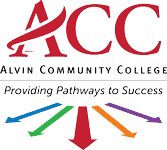Licensed Vocational Nursing (LVN)
Frequently Asked Questions
Accepted applicants begin the program each summer semester and complete the program the following May.
Because LVN acceptance is based on the HESI A2 test scores, not course grades, previous college grades do not affect your chance of acceptance into our LVN program.
Successful LVN program graduates may apply to the BON for a temporary permit to practice as a graduate vocational nurse (GVN). This allows the GVN to practice while waiting to take the National Council Licensure Examination for Practical Nurses (NCLEX-PN). After passing the exam, the GVN is issued a license to practice as a Licensed Vocational Nurse (LVN).
Admission to the LVN program is competitive. There are no pre-requisite courses for the LVN program. Applicants are ranked primarily according to their HESI A2 exam scores. Additional consideration will be given to those who (1) reside within the Alvin College tax district; and/or (2) those who score 85 or above on the HESI Math section; and/or (3) those who have completed BOTH BIOL-2401 A&P I and BIOL-2402 A&P II with a grade of “C” or better within the 5 years prior to the LVN application deadline. To find out if you live in the Alvin College tax district, call the College Admissions Office 281-756-3531.
If your BIOL or VNSG A&P grades are high enough but too old, you may still substitute the old grades for the LVN A&P if you pass a competency exam covering both semesters of A&P. You may not use the A&P competency exam in place of taking the BIOL 2401 & 2402 courses or LVN A&P course. For questions about the competency exam or to sign up for it, call 281-756-3530 or see the additional information in instruction packet.
Clinical hours: First semester, 7a-3p Thursdays on the Alvin College campus. For the second and third semesters we attempt to schedule clinical on Tuesdays & Wednesdays for 12 hours each day, BUT we are limited to what clinical placements the facilities will give us each semester. This means that clinical may occur on any evenings, nights, or weekends.
All applicants that are accepted into the Alvin College LVN program must complete all three semesters of the program beginning with the first (summer) semester. Substituting individual nursing courses taken elsewhere may be possible, subject to the LVN Department Chair’s approval. Students must take Alvin College LVN course competency exams for any course being evaluated for transfer. A nursing skills competency evaluation may be required. Students must pass the competency exam(s) with a score of 75% or better. Skills competency demonstrations are evaluated on a pass/fail basis.
The Vocational Nursing Program complies with College policies regarding Civil Rights and the Rights of Individuals with Disabilities. Purpose of the ADA: to provide a clear and comprehensive national mandate for the elimination of discrimination against individuals with disabilities; to provide clear, strong, consistent enforceable standards addressing discrimination against individuals with disabilities; to ensure that the Federal government plays a central role in enforcing the standards established in this act on behalf of individuals with disabilities and to invoke the sweep of congressional authority, including the power to enforce the fourteenth amendment and to regulate commerce, in order to address the major areas of discrimination faced day-to-day by people with disabilities. (Americans with Disabilities Act, 1991)
An individual with a disability is a person who has a physical or mental impairment that substantially limits a “major life activity,” or has a record of such impairment, or is regarded as having such impairment. A qualified individual with a disability is one who meets the essential eligibility requirements for the program or activity offered by a public entity with or without reasonable accommodation. (ADA 1630.20)Essential functions are: those functions that the individual who holds the position must be able to perform unaided or with the assistance of a reasonable accommodation. (ADA 1630.2m) Reasonable accommodation: “Change in the way things are customarily done that will enable an individual with a disability to enjoy equal opportunities.” (ADA 1620.20)
- equal opportunity in the application process
- enable the disabled to perform essential functions of the position held or desired
- accommodations that enable disabled to enjoy equal benefits and privileges of persons without disabilities.
Performance requirements are basic activities a student must be able to complete in a reasonably independent manner. A student who poses a direct threat to the health or safety of others or to themselves will not meet the clinical/skills competencies required in the Vocational Nursing Program. A “direct threat” is defined as a significant risk to the health or safety of others that cannot be eliminated or reduced to an acceptable level by modification of policies, practices or procedures, by the provision of auxiliary aids or services. Determination will be made on an individual basis.
Following is a list of performance requirements for all students enrolled in the Vocational Nursing Program:
- Visual acuity, depth perception and peripheral vision adequate with corrective lenses to see objects more than 20 feet away, see objects less than 20 inches away, read small print on containers and withdraw medications from small containers.
- Hearing ability with auditory aids to distinguish faint sounds with variations, understand the normal speaking voice without viewing the speaker’s face, hear auditory alarms, emergency signals, and communicate via the telephone.
- Gross motor skills and physical endurance to be able to stand and maintain balance for prolonged periods of time, lift objects of 35 lbs. or more, reach above shoulders and below waist, move from room-to-room, maneuver in limited spaces, and squeeze with hands.
- Communicate effectively in verbal and written form by speaking clearly and succinctly when explaining treatment procedures, describing patient conditions, implement health teaching, and write legibly.
- Fine motor skills with manual dexterity to write with a pen or pencil, type on a computer keyboard, pick up and manipulate small objects with hands, screw on caps, perform actions using two hands simultaneously, and pinch small objects with fingers.
- Physical Endurance Stand in place for prolonged periods, sustain repetitive movements, maintain physical tolerance for up to 12-hour periods, Stand and perform repetitive procedures on patients such as administering medications, and performing CPR.
- Function safely under stressful conditions with the ability to adapt to ever-changing environments.
Yes! If you have a history of criminal, psychiatric, or substance abuse events, the “Background Checks” pages (to follow) will explain the steps you need to take. Applicants who are convicted of a felony, appealing a felony conviction, or have a deferred adjudication felony, are not eligible for admission to Alvin College nursing programs. "Conviction” is defined in Texas Administrative Code Chapter 213, RULE §213.1
In general, RNs have a wider scope of responsibility, perform more complex tasks, earn higher pay, and supervise LVNs. Texas law (Nursing Practice Act) and Texas Board of Nursing guidelines (Differentiated Essential Competencies) describe the scope of LVN duties. Each facility that employs nurses designates LVN tasks within Texas law and BON guidelines. Allowable tasks vary from facility to facility.
COLLEGE & CAREER PATHWAYS
Licensed Vocational Nursing is part of our Health Career Pathway. Click the box below to see other Health programs that may interest you.

